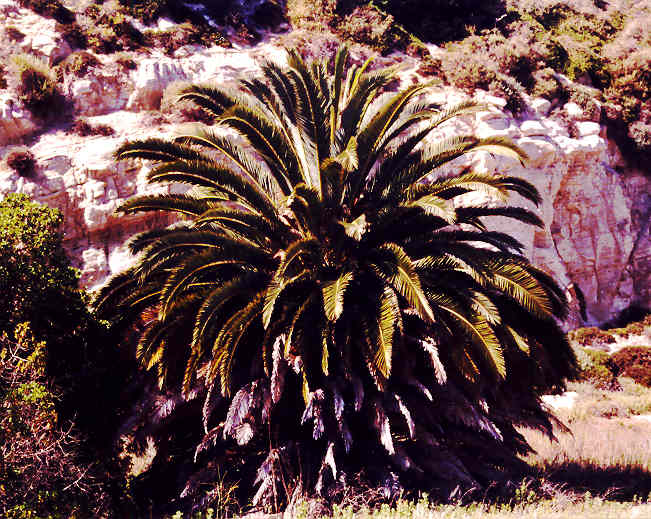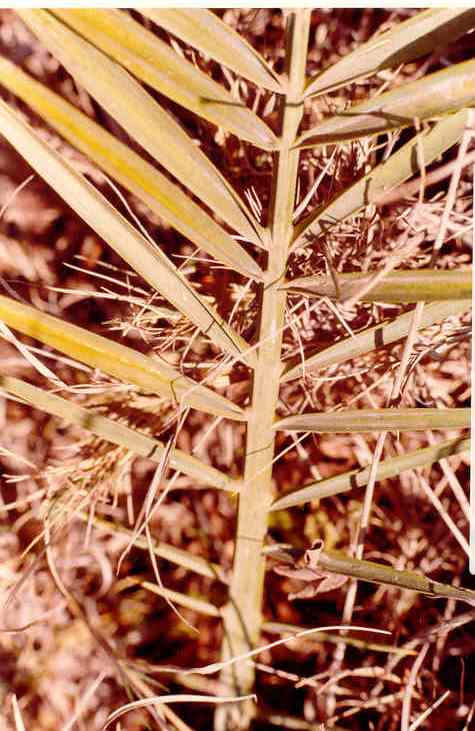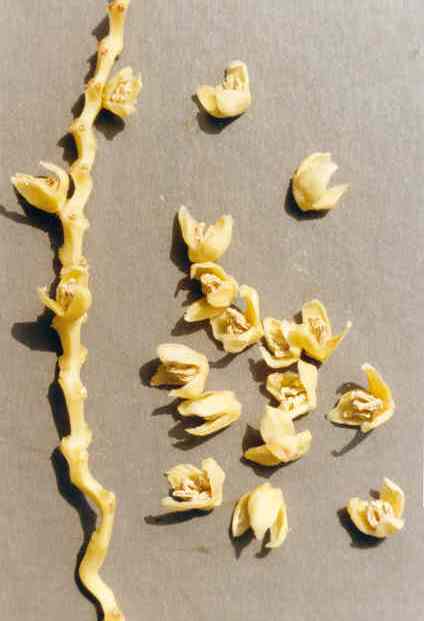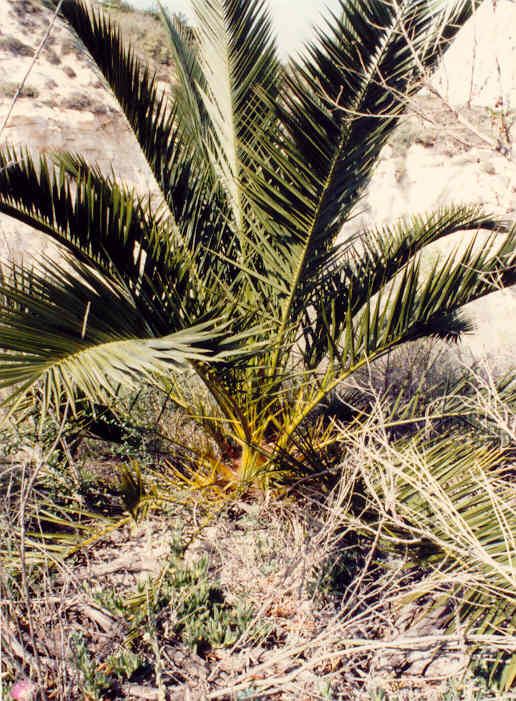
Phoenix canariensis Chabaud.
Arecaceae (Palm Family)
Canary Islands
 |
Phoenix canariensis Chabaud.Arecaceae (Palm Family)Canary Islands
Canary Island Date Palm |
May Photo
Plant
Characteristics:
Stout stocky tree to 60 ft. with single trunk and dense great head of
light green foliage, bole covered with old petiole bases; pinnae very many in
different planes, the lowest ones represented by long strong spines; dioecious;
fls. in branching spadices borne among the foliage; calyx 3-lobed, fruiting
perianth cup-shaped; petals 3 and usually distinct; stamens mostly 6,
represented in fertile fls. by minute pistillodes; fr. globose to somewhat
ellipsoid, about 3/4 in. long, yellow, somewhat pulpy; seed 2/5-3/5 in. long,
terete, obtuse at ends, with one long groove.
Habitat:
Hardy in Calif. and Fla. where it is much planted along avenues, boundary
markers, and as single trees on private properties. (Bailey 171).
There is no data in Bailey as to the time of bloom, however it is spring
locally. (my comment).
Name:
Greek, Phoenix, an early name
for the date palm whether from Phoenicia or the fabled bird of Egypt is not
clear. Canariensis,
means of the Canary Islands. (Bailey
171).
General:
Uncommon in the study area. Of
the three plants photographed, the first is, without much doubt, P.
canariensis. The second, which
is a tree of about the same size as the first is not as dense and has the
general color of P. dactylifera, the
date palm. This tree is male
and has a flower with 6 stamens and three sepals that is characteristic of Phoenix spp. The
third tree is too small to be able to tell much about.
Photographs in the order listed above were taken on North Star Beach, on
the path from Mariner's Dr. going toward North Star Beach, and along Back Bay
Dr. near its termination at Eastbluff Dr. (my comments).
Arecaceae species have been known to cause hay fever and asthma.
(Fuller 381).
Ten or a dozen species of feather-palms native in the trop. and subtropical
parts of Africa and Asia. (Bailey
171). Abundantly cultivated, the
fruit pulp is sweet and edible. Now
naturalized. (Hickman, Ed. 1105,
1357).
Text Ref:
Bailey 171; Hickman, Ed. 1105; Roberts 42.
Photo Ref:
Feb-Mar 86 # 5; May 1 87 #3; Jan 1 86 # 3,4; Feb-Mar 84 # 18,19; May 06
#24A.
Identity: by R. De Ruff.
First Found: March 1984.
Computer Ref: Plant Data 199
No plant specimen except fls. of one tree.
Last edit 6/3/06.
 |
 |
 |
February Photo May Photo May Photo